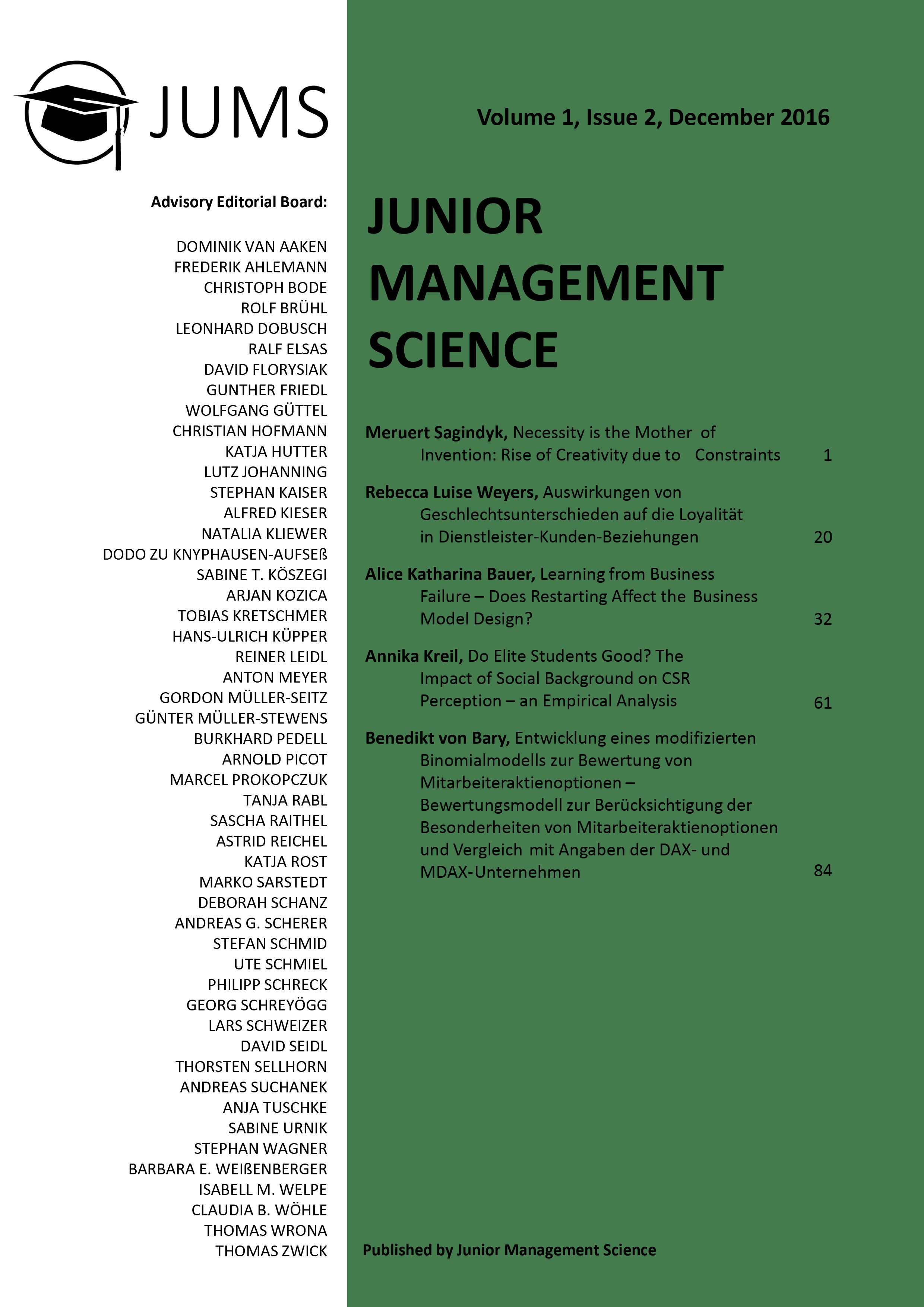Abstract
More and more companies are pursuing corporate social responsibility (CSR) initiatives. Current scientific literature mainly evaluates the underlying economic and non-economic motivations of CSR. This thesis aims to expand the current framework and empirically investigate the impact of managers’ social background on CSR perception. Therefore, I first review Bourdieu’s theory of social reproduction with a special notion of the different forms of capital and the concept of habitus as well as existing research on CSR perception with an emphasis on stakeholder theory. In a next step, I developed an online questionnaire that combines these two concepts. This questionnaire was sent to students of the Bavarian EliteAcademy, a program that educates future leaders from all social backgrounds. The results of the regression reveal that social background is influential in determining the importance put on shareholder interests. Moreover, students align their ranking of stakeholder importance with their self-perception as stakeholders. Self-perception as shareholders shows most correlations with social background variables. These findings support the hypothesis that social background affects CSR perception. It is especially interesting that students who might assume future leadership positions are already now united by a similar habitus.
Keywords: Corporate Social Responsibility (CSR), Stakeholder theory, Bourdieu’s Social Reproduction Theory, Habitus, Leadership

